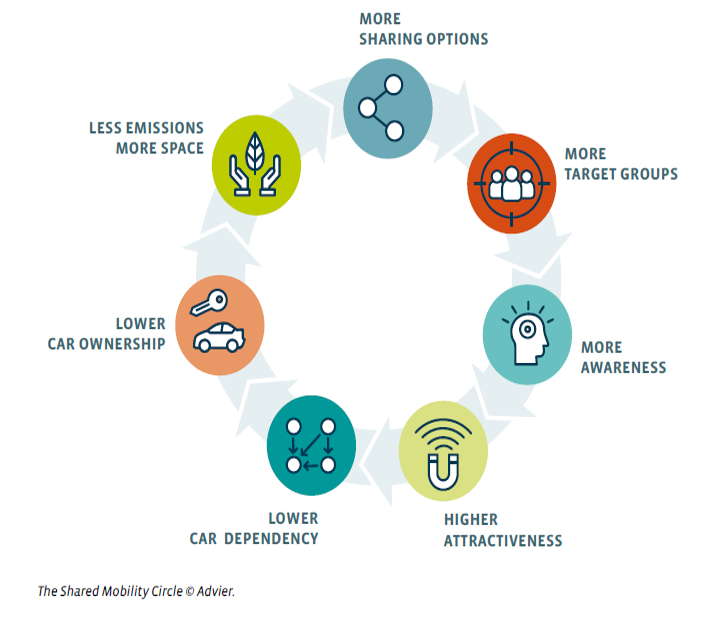Shared Mobility 101 : The Shared Modes – Webinar
There are many types (and sub types) of shared mobility, all with their own characteristics, market dynamics and often their own language and wording. What do we know about these shared mobility types and how are they developing? And how do they support the shift from ownership to access?
In this webinar, we dove into these issues to give a general overview as well as share some concrete examples from a provider perspective. Friso Metz from Advier (NL) will introduced the topic, described the types of shared modes stating that, “Basically, any type of vehicle can be shared”. However, he went into greater detail to describe the various forms of sharing. Shared mobility can take place in the form of sharing vehicles, sharing trips and sharing space. Shared vehicle models include operation variations from station-based and free-floating to homezone and one-way free-floating models. Shared rides can be pre-arranged (for regular commuter groups), on-demand services and even public transport.
The categories of sharing are numerous and the development is highly dynamic. Friso Metz described three speeds at which the shared mobility market and certain modes are growing: slow but steady, fast expansion and booming services. Among the slow but steady growth are the station-based carsharing services that have a high impact on promoting sustainable travel behaviour but are often associated with “low appeal” whereas shared e-scooters have a low impact on sustainable travel behaviour in Europe but a “high appeal” to new users. Friso also touched upon the synergies between these “low” and “high” appeal modes, as research has shown that the more shared modes of transport that are available in a city, the more receptive residents of that city are to using shared transport modes.

Daan Wijnants, Head of Public Affairs for the Netherlands-based E-Moped sharing operator Felyx, gave a glimpse into the provider perspective. Felyx was founded in 2017 and is a self-proclaimed provider of a “new and disruptive urban mobility concept”. Since then, they have rapidly expanded their service to other cities across the Netherlands and the rest of Europe. Daan Wijnants gave an overview of the company’s beginnings, focal points usage and growth during the Covid-19 pandemic as well as plans to expand into future markets. The provider’s goal is to work closely and in partnership with cities and wishes to be a valuable partner to supporting sustainable transport goals, particularly as a last-mile solution and as an alternative to car trips.

If you missed the webinar, you can download Friso Metz’s slides on The Shared Modes 101 here.
Daan Weijnant’s presentation on Felyx here.
Or view the recording of the entire webinar here.
Summary by Rebecca Karbaumer, City of Bremen (DE).

 Share North
Share North
